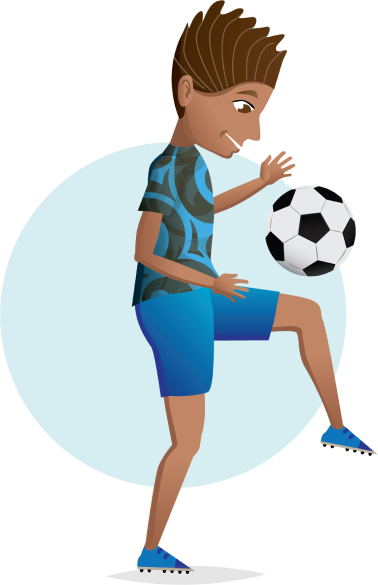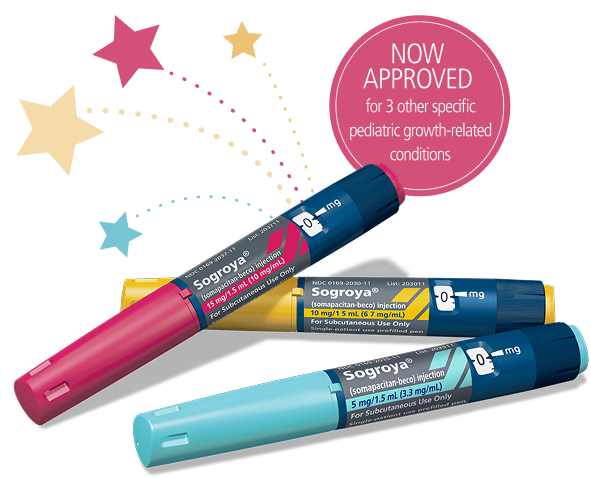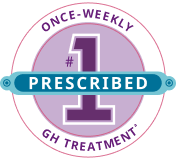NEW INDICATIONS! Sogroya® is the first and only once-weekly growth hormone treatment approved for children 2.5 years of age and older who are short (in stature) and were born small (Small for Gestational Age-SGA) and have not caught up in growth by age 2 years, are not growing and have Noonan Syndrome (NS), and have Idiopathic Short Stature (ISS). Ask your doctor for more information. Please click here for Sogroya Prescribing Information.
Where would you like to go now? You can...
aBased on data from Komodo Sentinel as of September 2025.

The Sogroya® pen: easy to use and based on the FlexPro® you knowb
The Sogroya® pen is ready to use, prefilled, and doesn’t require cartridges or preparation of the medicine. So, which device do you think is preferred by patients and caregivers alike?
bIn a randomized, crossover device preference and handling study of the Sogroya® pen in 33 adolescents aged 10-17 with growth-related disorders and 37 caregivers aged 18 and older, 99% (69) of participants found the Sogroya® pen easy or very easy to use. After training, users performed simulated injections into a pad or mannequin and then completed the Device Handling and Preference Assessment Questionnaire (DHPAQ).
Starting treatment or switching to Sogroya®?
You may be relieved to learn that Sogroya® is covered by CVS Caremark®, Optum Rx®, Blue Cross Blue Shield Federal Employee Program®, TRICARE®, Texas Medicaid, MedImpact/Elixir, Aetna®, Ventegra®, and Blue Cross Blue Shield® Massachusetts. Get more information about support programs as you begin your GH journey.c
cIndividual benefit designs and individual coverage may vary. Because many health plans offer more than one formulary, check directly with your health plan to confirm coverage.
Actor portrayal








Actor portrayal
Are you an adult living with AGHD?
Leave the once-daily baggage behind with Sogroya®. The first once-weekly treatment for adult growth hormone deficiency (AGHD).
Already on Sogroya®?
Get help planning injections
The Sogroya® Smart Scheduler will help you manage your injection days, including split doses.
Personalize your pen
Let’s make dose day more fun! With tons of charms and stickers to choose from, kids can express themselves with their pen.
Updates and helpful information
Tips and suggestions
Support, including patient resources




